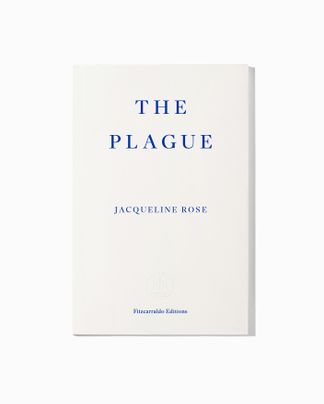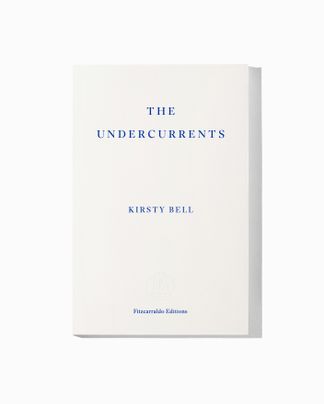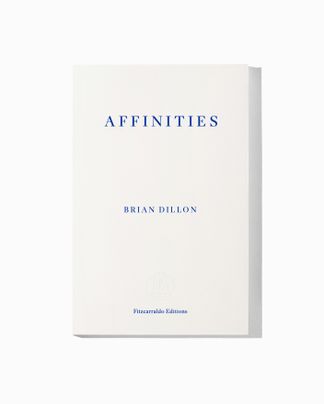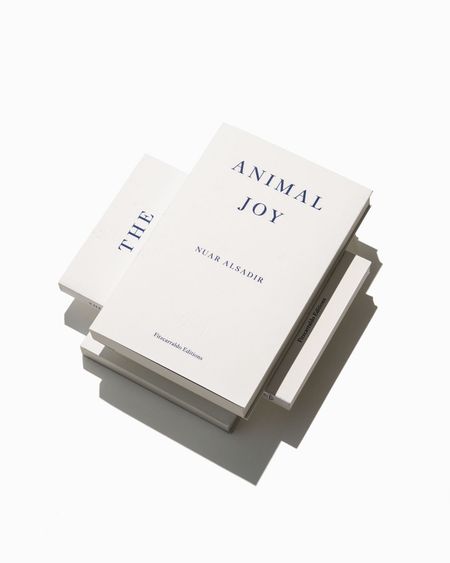Laughter shakes us out of our deadness. An outburst of spontaneous laughter is an eruption from the unconscious that, like political resistance, poetry, or self-revelation, expresses a provocative, impish drive to burst free from external constraints. Taking laughter’s revelatory capacity as a starting point, and rooted in Nuar Alsadir’s experience as a poet and psychoanalyst, Animal Joy seeks to recover the sensation of feeling alive and embodied.
Writing in a poetic, associative style, blending the personal with the theoretical, Alsadir ranges from her experience in clown school, Anna Karenina’s morphine addiction, Freud’s unfreudian behaviours, marriage brokers and war brokers to ‘Not Jokes’, Abu Ghraib, Fanon’s negrophobia, smut, the Brett Kavanaugh hearings, laugh tracks, the problem with adjectives, to how poetry can wake us up. At the centre of the book, though, is the author’s relationship with her daughters, who erupt into the text like sudden, unexpected laughter. These interventions – frank, tender, and always a challenge to the writer and her thinking – are like tiny revolutions, pointedly showing the dangers of being severed from our True Self and hinting at ways we might be called back to it. A bold and insatiably curious prose debut, Animal Joy is an ode to spontaneity and feeling alive.
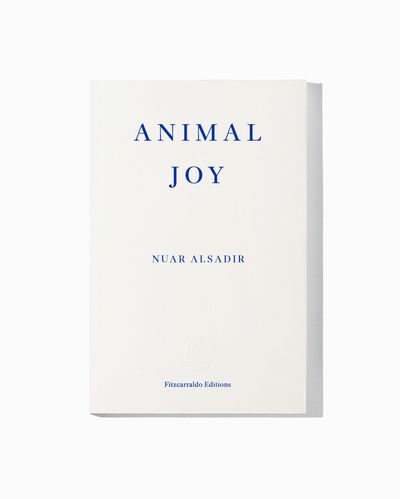
Animal Joy
French paperback with flaps, 320 pages
Published 2 August 2022
Animal Joy
After my first day of clown school, I tried to drop out. The instructor was provoking us in a way that made me uncomfortable: to the nervous, smiley woman, “Don’t lead with your teeth”; to the young hipster, “Go back to the meth clinic”; and to me, “I don’t want to hear your witty repartee about Oscar Wilde.”
I was the only nonactor in the program and had made the mistake, as we went around the circle on the first day, of telling everyone I was a psychoanalyst writing a book about laughter. As part of my research, I explained, I had frequented comedy clubs and noticed how each performance, had it been delivered in a different tone of voice and context, could have been the text of a therapy session. Audience members, I told them, laughed less because a performer was funny than because they were honest. Of course that’s not how all laughter operates, but the kind of laughter I’m interested in—spontaneous outbursts— seems to function that way, and clown performances push that dynamic to its extreme, which is why I decided to enroll in clown school, and how I earned the grating nickname “smarty-pants.”
But if I dropped out, I would lose my tuition money. So I decided to stay and, by staying, was provoked, unsettled, changed.
There’s a knee-jerk tendency to perceive provocation as negative—like how in writing workshops participants often call for the most striking part of a work to be cut. When we are struck, there’s a brief pause during which the internal dust is kicked up—we lose our habitual bearings and an opening is created for something unexpected to slip in. Habit protects us from anything we don’t have a set way of handling. Because we are least automatous when caught off guard, it’s in those moments that we are most likely to come up with spontaneous responses.
It turned out that the perpetually smiling woman was sad, the hipster (who didn’t even do drugs) acted high as a way of muting the parts of his personality he was afraid we would judge, and I found it easier to hide behind my intellect than to expose myself as a flawed and flailing human being. Each role, in other words, offered a form of protection: by giving off recognizable signals to indicate a character type, we accessed a kind of invisibility. We cued people to look through us to the prototypes we were referencing. When the instructor satirized those roles, he defamiliarized them so the habitual suddenly became visible. His provocations knocked the lids off the prototypes we were hiding inside of, in a similar way to how many psychoanalysts, in the attempt to understand a person’s conflicts, begin by analyzing their defenses—what is being used as a cover—before moving on to what is being covered up and why.
Both psychoanalysis and the art of clowning—though in radically different ways—create a path toward the unconscious, making it easier to access the unsocialized self, or, in philosopher Friedrich Nietzsche’s terms, to “become the one you are.” Psychoanalyst D. W. Winnicott considers play to be “the gateway to the unconscious,” which he divides into two parts: the repressed unconscious, which is to remain hidden, and the rest of the unconscious, which “each individual wants to get to know” by way of “play,” which, “like dreams, serves the function of self-revelation.” In clown school, the part of the mind that psychoanalysis tries to reveal—by analyzing material brought into a session, including dreams and play—is referred to as a person’s “clown.”
Each of us has a clown inside us, according to Christopher Bayes, head of physical acting at the Yale School of Drama and founder of the Funny School of Good Acting, where I was taking my two-week, six-hours-per-day workshop. The theatrical art of clowning—commonly referred to as “clown”—is radically different from the familiar images associated with birthday parties, circuses, and horror stories. Bayes’s program helps actors find their inner clown. The self-revelation that results provides access to a wellspring of playful impulses that they can then tap into during creative processes. His method stems from the French tradition developed by his former teachers Jacques Lecoq and Philippe Gaulier—the kind of training the fictional main character of actors Louis C.K. and Zach Galifianakis’s TV series Baskets seeks, and that Sacha Baron Cohen, Emma Thompson, and Roberto Benigni underwent early in their careers.
Lecoq, who began his career as a physiotherapist, believes that “the body knows things about which the mind is ignorant”—a phrase that can be applied to the unconscious. The process of trying to find your clown involves going through a series of exercises that strip away layers of socialization to reveal the clown that has been there all along—or, in Winnicott’s terms, your “True Self.”
Various experiences affect our ability to make contact with our true self. Winnicott sees the first signs of the True Self in the spontaneous gestures of an infant, which would develop if a “good enough mother” was able to affirm and accept them, or be hidden if she disapproved of or corrected them (“It’s not mooooah, it’s Mama!”). When an infant modifies its behavior to please—a survival mechanism at base, given the infant’s dependency on the mother for its basic needs—the socialized self begins to develop.
The more our concerns surround survival, in fact, the more we suppress our primal instincts and try to blend in—or, in the extreme, play dead (like hiding among a pile of bodies during a mass shooting). The social equivalent of playing dead is to put forward a facade—what Winnicott terms the “False Self,” built around manners and protocols as opposed to spontaneous expression— that flies under the radar in order to ensure the survival of the True Self. It’s a kind of psychological slouching based on the belief that whatever stands out is dangerous: the tallest sunflower gets snipped.
The clown is different. The clown gets up before an audience and risks letting whatever is inside them seep out, just as analysands in psychoanalysis free-associate, let their thoughts go wherever the mind takes them. While the analyst searches for the analysand’s True Self by way of material that reveals the unconscious, the actor in clown school seeks to discover it by way of their spontaneous expressions. These processes are similar to what philosopher Martin Heidegger terms aletheia, or truth as unconcealment. The clearest expression I’ve heard of aletheia came years ago, when I overheard my then three-year-old daughter call someone beautiful. I asked, What does beautiful mean? Still close to her clown, she replied, Beautiful means most self.
Like a clown’s red nose, beauty reveals: “You know the clown is present,” according to Bayes, “when you no longer see the nose.” Gaulier runs a clown school in Paris that actors flock to from around the globe for its famous yearlong training program. His purported definition of beauty as “anyone in the grip of freedom or spontaneity” functions as a guiding principle in the clown community. The clown is the embodiment of this beauty in the unmediated expression of raw emotion—the mask, according to Lecoq, “draw[s] something from [the actor], divesting him of artifice.” The mask, in other words, unmasks.
(…)
‘To read Animal Joy is to become alive to the condition of wakefulness in the world. This spectacular achievement by the psychoanalyst and writer Nuar Alsadir provokes and destabilizes our understanding of a life’s competing narratives. I can think of no other contemporary work of nonfiction that brings together autobiography, a learned history of psychoanalysis, lyrical poetics, ontological investigations of our attempt to manage our own feelings, with such astute engagement. This is a work that will change conversations about who we are, what we think motivates us, what makes us us. The meeting place of the intentional and the unintentional erupts in Animal Joy in order that we might reinvestigate our incoming thoughts and feelings with a sense of vigor and curiosity. If you are open to introducing “tiny revolutions” of thought into your life by resisting received and uninterrogated scripts, read this book.’
— Claudia Rankine, author of Citizen
‘With Animal Joy Nuar Alsadir is in a relentless pursuit of authentic life, slaying the endless ways we accept falsehoods and store-packaged simulacrums, in search for what is beyond the obvious. Alsadir radically foregrounds inner over external reality as an act of subverting convention. Moving seamlessly between the most intimate to the political reality of our time, she leans hard into the absurd, harnessing the engines of psychoanalytic theory, philosophy, and her poet’s love-hate relationship with language to bring back from exile what has been rendered unthinkable by social contract. Reading this book you are on a joy ride with the mind of a free thinker who will surprise you, make you laugh uncontrollably, and trouble you until you come out changed. You will gain a different relationship to what is before you, less tolerant of the lies and defenses that keep us apart from the impulse of our true self, joys, excitements, and devastations.’
— Orna Guralnik, Psychologist, Psychoanalyst, Couples Therapy (BBC)
‘Few things feel as important right now as what Nuar Alsadir is thinking about in her brilliant new book. She considers the ways in which, despite our most determined curation of our public-faces, and despite our approval-seeking and plain old quotidian bullshittery, laughter reveals to us (and sometimes others) what we might really feel.’
— Ross Gay, author of The Book of Delights
‘Nuar Alsadir has wandered fearlessly through the wordless regions of everyday life and returned intact, bearing this exhilaratingly personal and artful weave of stories and meditations. As precise as it is lyrical, Animal Joy invites us to attend anew to human feelings, those elusive, barely noticed entities transmitting everywhere, all the time, “with a frequency outside of measurement.”’
— Josh Cohen, author of Not Working
‘Nuar Alsadir’s lyrical, hilarious and beautifully undefended meditation has the capacity to widen our consciousness to allow notice of what occurs in the interstices of attention and mortification. In that way, Animal Joy is a book that seems compassionately able to read us as we turn its pages.’
— Jonathan Lethem
‘A genuine masterpiece. Nuar Alsadir’s Animal Joy might be the best thing I’ve ever read on psychoanalysis and its deep connection to living a full, real, embodied life. Utterly compelling, radical, dizzyingly original, and beautiful, this is the work of a writer at the height of their powers.’
— Rebecca Tamás, author of Strangers
‘Gorgeously written and by turns hilarious and crushing, Alsadir’s examination of humanity’s “savage complexity” is not to be missed.’
— Publishers Weekly, starred review
‘It will leave you feeling enlightened and emboldened, and will even make you laugh.’
— Observer
‘Nuar Alsadir’s Animal Joy is extravagant with revelations. Alsadir reads the human psyche with brilliant rigor and generosity, patiently prodding underneath the surface of human behavior, language, politics and race to get at the root of the real. After I finished Animal Joy, I came away feeling more awake, more present, and more connected to myself and the world.’
— Cathy Park Hong, author of Minor Feelings
‘Through the awesome and heterogeneous study of this book, laughter at first feels like the most enigmatic act, a convulsing creature in the psyche, in the home, in awkward publics, but then it is returned to us as the most true form of comprehension; an animal attitude to reality, a culturing note of corpsing, creasing and cracking up, that snags on the meaning of everything.’
— Holly Pester, author of Comic Timing
‘Where do laughter, psychoanalysis, poetry, motherhood, creativity, thought, language, and so much more intersect? In Animal Joy Nuar Alsadir shows us in dazzling fashion, demonstrating what only the essay form, in the hands of a true artist, critic, and thinker, can achieve.’
— John Keene, author of Counternarratives
‘The book is in effect a gift to the courageous. It offers an opportunity for self-reflection and growth that, as in psychoanalysis, necessitates a head-on collision with pain. It is no happenstance that Alsadir is careful to establish the roots of empathy in the mirror neurons that facilitate the primal need for kinship care … In a neat corollary, [Alsadir’s] book forms a subtly engineered bridge between art and reason.’
— Melissa Holbrook Pierson, The Washington Post
‘[Animal Joy] is vulnerable, lyrical, and refreshingly incisive…. Alsadir’s quiet wit and depth of knowledge lead to unique insights and profound self-reflection.’
— Kirkus Reviews
‘Here’s a mind that can go anywhere, too, and we are taken on a fascinating journey with an astonishing number of brilliant insights along the way as a result.’
— Buzz Magazine
‘Alsadir’s Granta essay on the emotional flagellation of clowning is one of the best pieces of writing I have ever read, and her longer interrogation into the act – and release – of laughing is equally powerful and moving.’
— Courtney Maum, Literary Hub
‘Expansive and erudite…. Watching the motion of [Alsadir’s] mind across her capacious subject matter is captivating.’
— Kathleen Rooney, Liber
Nuar Alsadir is a poet and psychoanalyst. She is the author of the poetry books Fourth Person Singular, a finalist for the National Book Critics Circle Award in Poetry and the Forward Prize for Best Collection, and More Shadow Than Bird. She lives in New York City.

